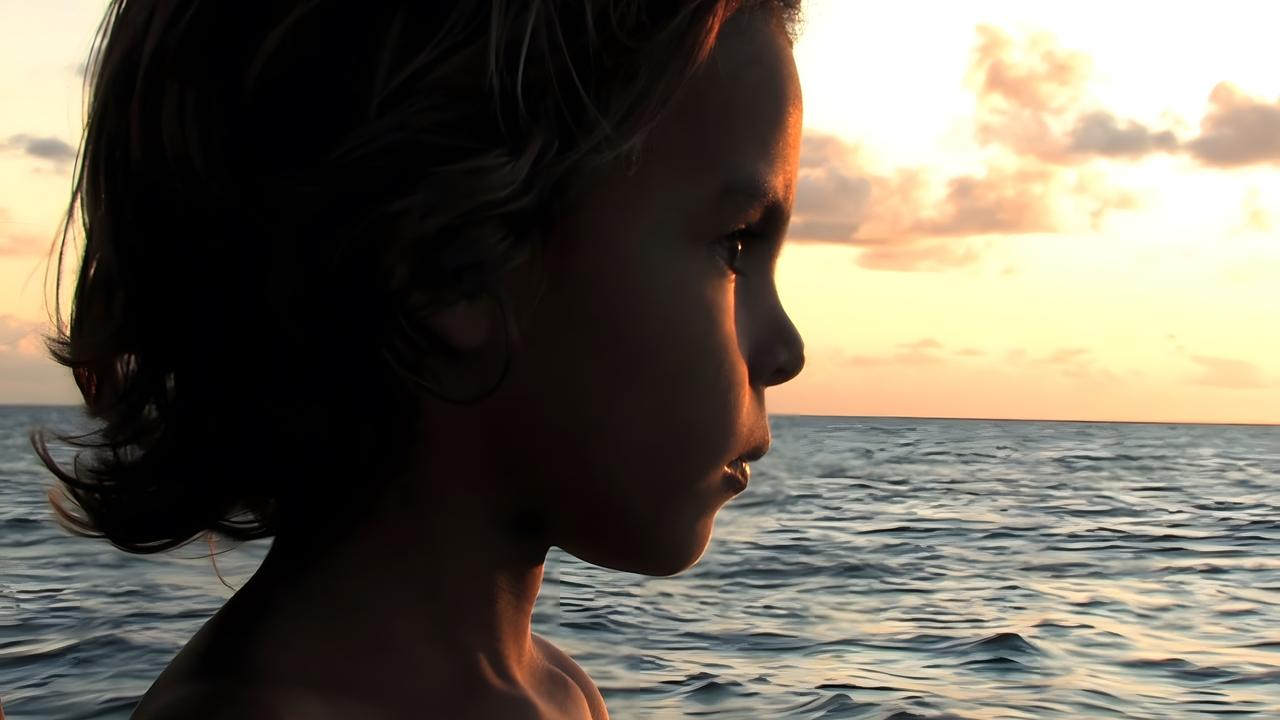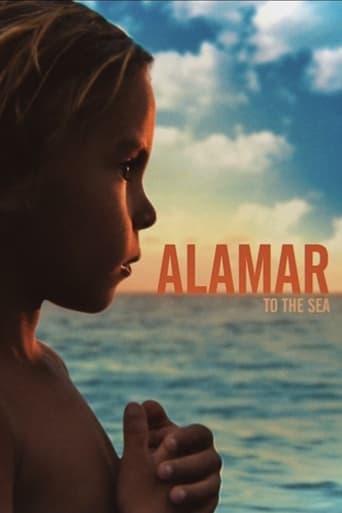

Once in a while, a film appears that restores one's faith in the cinema as a medium, and reminds one of its possibilities for opening a window on a magical world. This is one such film. The film is unconventional, and proceeds at a slow pace certain to madden even further the maddening crowd. But for those who like to know more about 'real life', especially in unfamiliar surroundings, this slice of life provides a unique vision. The main characters are a man and his son, and the man's elderly father. It seems that the man and his son really are just that, whereas the grandfather is an actor. The man is a Mexican 'of Mayan Indian descent', though he does not look like a Lacandone to me, so he must be from another tribe descended from the Maya of this particular region (the Lacandone, who are pure Maya, being much further inland, living in depths of the forests), and his son has come to visit him on the Mexican coast from his Italian mother, who lives in Rome. It is the boy's introduction to a timeless way of life which in many respects is thousands of years old. The setting is the remarkable Mexican heritage site of Banco Chinchorro, a coral reef in the sea near the ancient Maya centres of Quintana Roo and Cozumel, in the Caribbean off south-eastern Mexico. The father and grandfather live the lives of simple fishermen in a hut on stilts just off the shore. The film features a great deal of undersea photography showing them spearing lobsters on the seabed without oxygen tanks, but only snorkels. The young Mexican director Pedro Gonzalez Rubio, who studied at the London Film School, has made this amazing film with himself as writer, cameraman and editor, and apparently the assistance of only two other people apart from the cast. He says he wanted to show life 'in the middle of the sea, in the place of origins'. He certainly succeeded in doing that, for there is a timeless quality to this film. It makes such a difference in a feature film which is not a documentary to see real people doing real things in real places rather than the perpetual parade of illusion which is what feature films normally are. The life portrayed here in the house on stilts and in the sea, the lack of any watch or clock, the entire immersion in 'what happens naturally' (often personified as 'Nature') is a salutary lesson to us all, prisoners as we are of a rigidly systematized and over-structured reality which is really a false reality. The people in this film are living a dream, and it is a true dream, whereas we are living a nightmare, and it is a false one, a monstrous parody of life invented and enacted by maniacs. One of the touching emotional details in this film is the friendship between the boy and a wild egret whom he names Blancquita. Although the little white bird has yellow eyes, when the boy draws it, he gives it blue eyes. Frigate birds and a young crocodile also feature as characters in the film. Rubio is a poet, and his filmed poem is a masterpiece.
... View MoreThis short film is a beautiful breath of fresh air amidst the current popular cinema. Pedro González-Rubio reveals the daily life of a young Italian boy, Natan, who has gone to visit his father and grandfather in Mexico, where they live at sea as fishermen. The film is more of a documentary, not following any intense plot, but rather, reflecting on the beauty of nature and the loving relationship between father and son. The cinematography is breathtaking, and I found myself wishing I could live at sea along the Banco Chinchorro as well. The absence of any music or soundtrack throughout the film is both interesting and compelling, because it forces the viewer to focus on the natural sounds of water, wildlife, and simple human interaction and conversation. There is a deep tranquility to this film, a sensation that washes over the audience as well, and one that I particularly enjoyed.
... View MoreI am astounded by the obtuseness of the people here complaining that this beautiful movie lacks plot or narrative. A man and a woman drastically unsuited to each other have a child. The child spends some time with his father before his mother takes him away for good, far out of the father's reach. That's a huge story! Handled here the way it is, simply and sensitively, without false tension or wrong notes, this film delivers no thrills - no sharks, no drug cartels, no Russian submarines - just beautiful images and genuine emotions. The two fishermen are at one with nature, living lightly on the earth, or the sea rather, and they pass on their knowledge and wisdom to the boy with love. David Attenborough makes fine nature documentaries, obviously, but they have nothing to do with this movie.
... View MoreThis film tells a beautiful story about a family divided my the absence of love between two parents and their common love for their son Natan. Natan travels from Italy to spend some time with his father and grandfather in Banco Chinchorr. Because Natan's father and grandfather are fishermen his spend much of his time in and on the clear blue waters of Banco Chinchorro, an atoll reef lying off the southeast coast of the Municipality of Othón P. Blanco in Quintana Roo, Mexico, near Belize. A lovely movie all can enjoy, especially if you are looking for a delightful movie at the pace of paradise. This film has my on the next flight to Mexico.
... View More